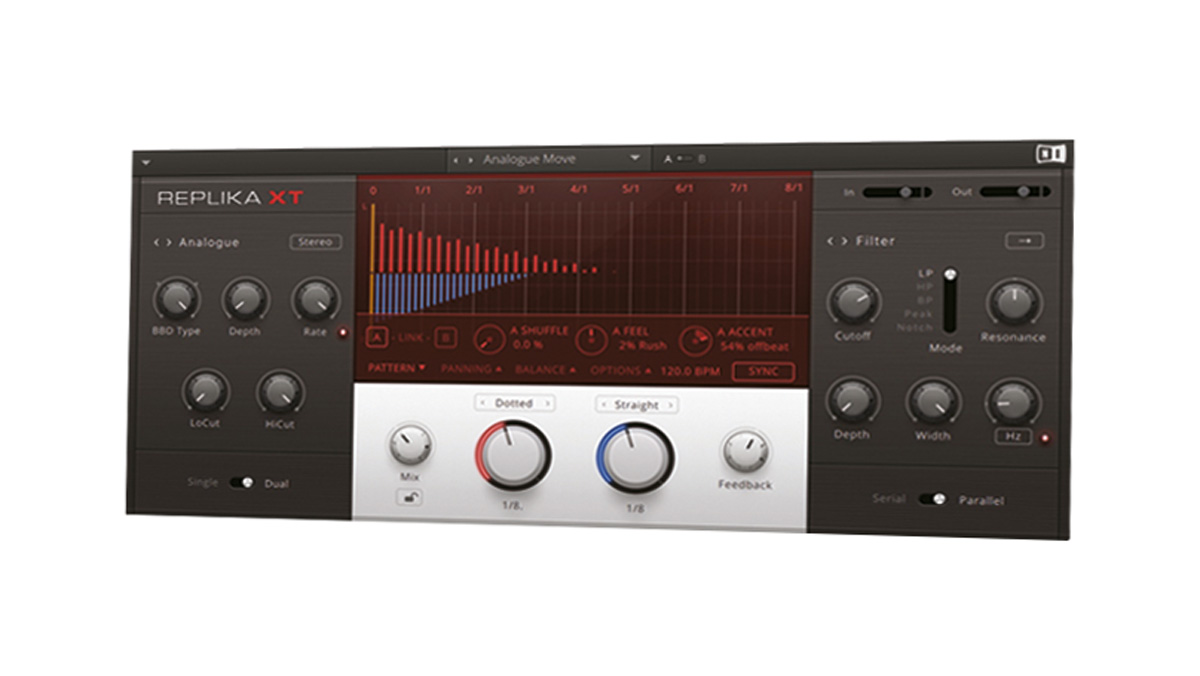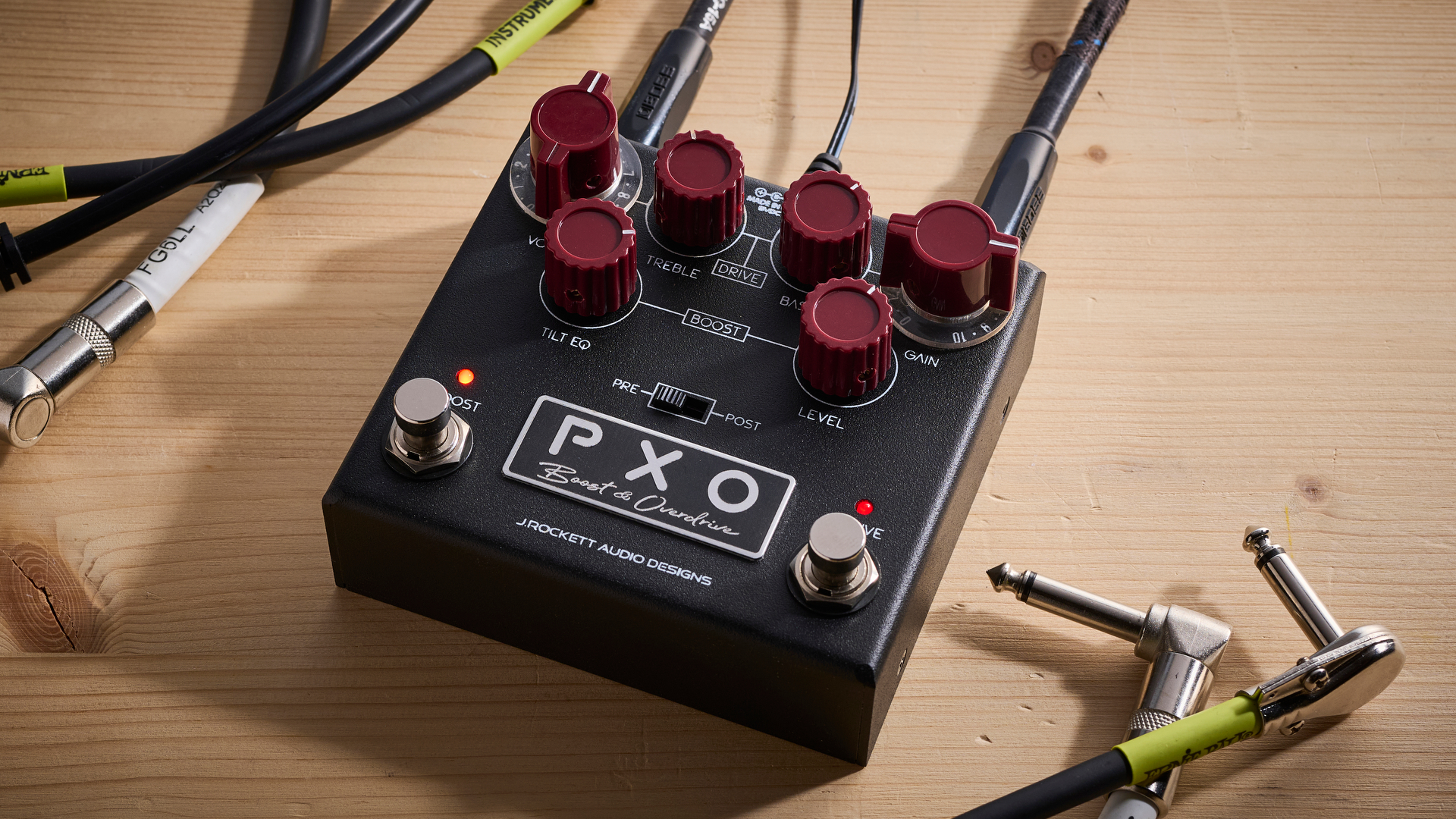MusicRadar Verdict
A seemingly modest feature set belies the flexibility, depth and sheer quality of this stellar creative delay plugin.
Pros
- +
Five very different Styles. Precise rhythmic tweaking. Single, Parallel and Serial modes.
Cons
- -
Nothing - we love it.
MusicRadar's got your back
Originally released for free under a Christmas promotion in 2014, before getting a regular pricetag shortly after, Native Instruments' Replika is a straightforward delay plugin, incorporating a single feedback delay (regular or ping-pong), phaser and filter modulation effects, and three Styles (Modern, Vintage Digital and Diffusion) that influence the overall sound.
Replika XT (VST/AU/AAX) doesn't replace Replika (which now sells for £44), but builds on its design, adding some new features and enhancing existing ones to deliver a very broad range of delay, modulation and even reverb-like effects.
The headline additions include Dual mode (placing two delay lines in Serial or Parallel, with the original Replika behaviour now called Single mode), two additional delay Styles (Analogue and Tape, bringing the total to five), and five new Modulation effects: Flanger, Chorus, Freq Shifter, Pitch Shifter and Micro Pitcher, making seven altogether.
The new central display serves as a selection page when choosing a Style or Modulation, and a colour-coded (red for delay A and blue for delay B) display showing delay timing, level, panning and output mix the rest of the time.
Simple but complex
Once you look beyond its key delay parameters, Replika XT's behaviour is mainly influenced by the Styles and their associated controls.
To our ears, there are three standout options: Tape, Analogue and Diffusion. Tape delivers good and flexible tape-style sonics, with enough general dirt to make activating the rather overbearing Noise setting unnecessary.
Analogue really captures the essence of those early delay units, with convincing pitch changes when the delay timing is tweaked on the fly. And while the reverb-emulating Diffusion Style may seem like an odd inclusion, it really works, conjuring up some wonderfully long, evocative spaces.
The seven Modulation effects sound excellent, adding a further layer of processing to the delayed signal. The Filter, Frequency Shifter and Pitch Shifter can be placed inside the delay feedback loop, too, for echo effects that evolve in very interesting ways.
At the bottom of the central display, a fold-up tabbed panel features further controls. In the Options tab, you can select whether the dry and delayed signals or just the delay feed the Modulation effect, while the Pattern and Panning tabs enable extensive tweaking of the timing and stereo positioning of each delay line. Pattern controls comprise Shuffle, Feel (from Rush to Lag) and Accent (100% Onbeat to 100% Offbeat), allowing quick but powerful overall adjustment of the delay's rhythm.
Further, delay mode-specific parameters include A/B delay Balance for Level and Feedback in Dual mode, and L/R timing offset (0-25ms) and Ducking in Single mode. We particularly like the last one, as it can be set so that the delay fades up from its initial low level as the feedback progresses. The tempo sync option is independent for each delay line.
Replika XT delivers a mixture of regular, panning and modulated delays alongside an interesting array of spatialising, pitched and oddball effects, and has plenty to offer sound designers and creative producers alike. In a word, brilliant.
Computer Music magazine is the world’s best selling publication dedicated solely to making great music with your Mac or PC computer. Each issue it brings its lucky readers the best in cutting-edge tutorials, need-to-know, expert software reviews and even all the tools you actually need to make great music today, courtesy of our legendary CM Plugin Suite.
“I used everything I knew about music”: How Green Day exceeded expectations with their most ambitious song
YouTube just added AI tools that makes musicians, library music and video editors redundant
“Every one of them said yes without hesitation": Hank Marvin and Roger Taylor have just remade a '60s classic for charity











